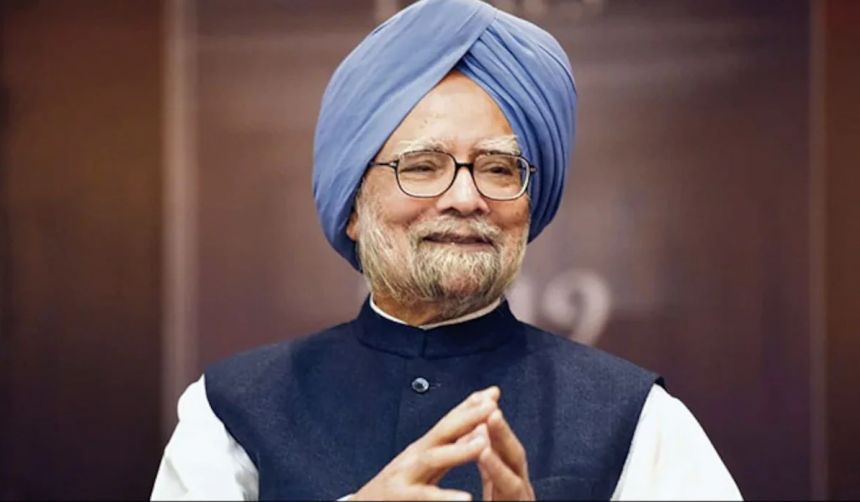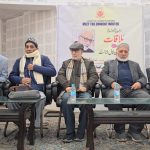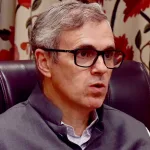TRIBUTE
Dr. Manmohan Singh, the first Sikh Prime Minister of India, who was known for his trailblazing economic reforms that propelled India into a global powerhouse died on Thursday, 26 December in New Delhi. He was 92.
Prime Minister Narendra Modi on Friday paid his tribute to Dr. Singh, a distinguished political figure of our times. The Union Cabinet marked their respect for the former Prime Minister by observing a two-minute silence and by adopting a Condolence resolution that read as follows “Dr. Manmohan Singh has left his imprint on our national life. In his passing away, the nation has lost an eminent statesman, renowned economist, and a distinguished leader,” it said.
Praveen Chakravarty, Chairman of All India Professional Congress in his tribute to Dr. Singh said that ‘Dr. Singh’s life reads as the ultimate dream.His defining legacy is to illuminate a virtuous path to extraordinary success on the harsh and treacherous terrain of politics and public service. His whole life is a standout exception to the belief that one has to necessarily sacrifice principles of probity, integrity, sincerity, loyalty, and humility to succeed in politics”.
Closer home, leaders from Jammu and Kashmir also paid their tributes to Dr. Singh and expressed their admiration for him. Chief Minister Omar Abdullah fondly remembered Dr. Singh for his strategic approach to the Kashmir issue through multiple dialogue processes, his deep concern for the development of J&K, for making efforts to bring back Kashmiri Pandits to the state and for adopting measures to foster peace and development in the valley.
Dr. Singh had humble beginnings. After receiving an education from some of the world’s best universities, including the University of Oxford and the University of Cambridge, earlier in his career he worked at the United Nations Conference on Trade and Development and taught at Panjab University. He first came to prominence in 1972 as the Chief Economic Advisor in the Ministry of Finance. From 1982 to 1985, he served as the Governor of the Reserve Bank of India. In 1991, he was appointed as the Finance Minister. He was also the Chairman of the University Grants Commission.
His rise to become the Prime Minister of India was somewhat unconventional, which earned him the title of ‘Accidental Prime Minister’. Following the United Province Alliance’s unexpected victory in 2004, he was appointed by Sonia Gandhi. Questions regarding Sonia Gandhi’s citizenship and other challenges complicated her potential appointment as the Prime Minister. She was advised to nominate another individual for her role. Dr. Singh emerged as the consensus choice for the prime ministerial role and served as the Prime Minister of India for two tenures. Dr. Singh was never elected to the Lok Sabha, the lower house of the Indian Parliament, but he had been a member of the Rayja Sabha from 1996 until his retirement in April 2024.
His most notable achievement has been theliberalization of the Indian economy during his tenure as the Finance Minister from 1991 to 1996. When he became Finance Minister in 1991, India was close to an economic collapse. Dr. Singh during the budget speech said, “Their new government, which took office just a month ago, inherited an economy in serious trouble. The balance of payments situation is critical”. He was the chief economic architect for opening up India’s doors to global markets in 1991 to save India from economic ruin. This was an unprecedented and an unconventional measure in a deeply centralized economy. By 2007, at 9% a year, under his visionary leadership and owing to his economic reforms, India had become one of the fastest growing economies in the world.
Dr. Singh’s legacy is not limited to economic reforms. As a Prime Minister, he took several decisions that continue to shape more than a billion lives. He brought in new laws that strengthened and guaranteed the right to seek information from the government, he introduced the rural employment scheme guaranteeing livelihood for a minimum 100 days, and he also introduced the law that guaranteed free and compulsory education to children. His government also introduced a unique identity project known as the Aadhar scheme with the objective to increase financial inclusion and for the effective delivery of welfare benefits to the poor.
He announced his resignation before the 2014 general elections. “History will judge me more kindly than the contemporary media and opposition parties did,” he said. Soon after, he joined his alma mater, Panjab University as a Professor, marking his return to academia. His devotion and commitment to public life were praiseworthy. In the past two years, even with failing health, he discharged his duty with utmost commitment, by casting his vote in the Congress presidential election in 2022 and in the Parliament as an MP on behalf of the opposition in 2023.
He was known for being polite, warm, thoughtful and modest. He responded even to his critics with humility and grace. His critics labelled him as the ‘silent prime minister’. In the 2018 launch of the book “Changing India’ he quite famously said “people say I was a silent Prime Minister. I think these volumes speak for themselves. I would certainly like to say that I was not the prime minister who was afraid of talking to the press – I met the press regularly, and on every foreign trip I undertook, I had a press conference in the plane, or immediately after landing. So there are a large number of those press conferences whose results are also described (in the book)”.
Soon after Dr. Singh’s demise, a 2019 documentary based on his life the ‘Accidental Prime Minister’ garnered huge criticism from the public. It has been called a “work of fiction” and an attempt to “undermine Dr. Singh’s contribution to nation building”. There is a rising demand for a more balanced and true depiction of Dr. Singh’s life through a popular medium such as films or a documentary.
This 2019 documentary aside, not enough has been done to record the life of this visionary leader through books, films, documentaries, television, OTT platforms and other such mediums. Dr. Singh was an economist, academician, and political leader par excellence. We certainly need much more enthusiasm and initiative in documenting the life of Dr. Singh, as his life story is an important one, worthy of widespread dissemination and is most likely to inspire young people to enter public life.
(Shireen Moti is a Kashmiri Pandit and an Associate Professor of Law at O.P. Jindal Global University. She is a fellow at the Jindal India Institute. The views expressed are personal)








